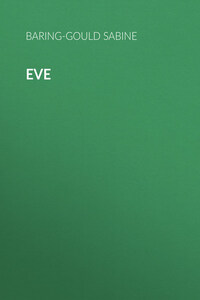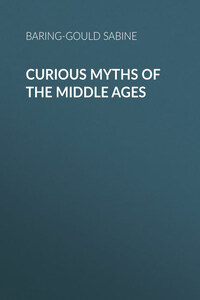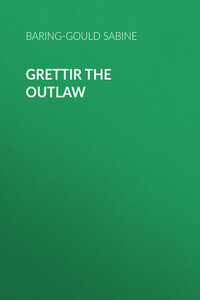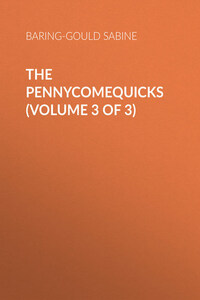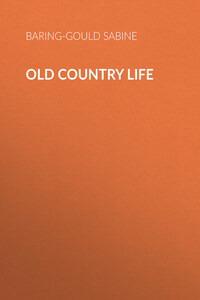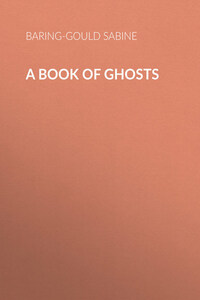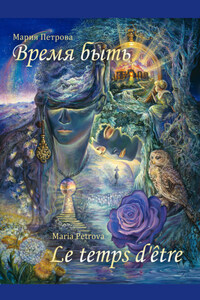The river Tamar can be ascended by steamers as far as Morwell, one of the most picturesque points on that most beautiful river. There also, at a place called ‘New Quay,’ barges discharge their burdens of coal, bricks, &c., which thence are conveyed by carts throughout the neighbourhood. A new road, admirable as one of those of Napoleon’s construction in France, gives access to this quay – a road constructed at the outlay of a Duke of Bedford, to whom belongs all the land that was once owned by the Abbey of Tavistock. This skilfully engineered road descends by zigzags from the elevated moorland on the Devon side of the Tamar, through dense woods of oak and fir, under crags of weathered rock wreathed with heather. From the summit of the moor this road runs due north, past mine shafts and ‘ramps,’ or rubble heaps thrown out of the mines, and meets other roads uniting from various points under the volcanic peak of Brent Tor, that rises in solitary dignity out of the vast moor to the height of twelve hundred feet, and is crowned by perhaps the tiniest church in England.
Seventy or eighty years ago no such roads existed. The vast upland was all heather and gorse, with tracks across it. An old quay had existed on the river, and the ruins remained of the buildings about it erected by the abbots of Tavistock; but quay and warehouses had fallen into decay, and no barges came so far up the river.
The crags on the Devon side of the Tamar rise many hundred feet in sheer precipices, broken by gulfs filled with oak coppice, heather, and dogwood.
In a hollow of the down, half a mile from the oak woods and crags, with an ancient yew and Spanish chestnut before it, stood, and stands still, Morwell House, the hunting-lodge of the abbots of Tavistock, built where a moor-well – a spring of clear water – gushed from amidst the golden gorse brakes, and after a short course ran down the steep side of the hill, and danced into the Tamar.
Seventy or eighty years ago this house was in a better and worse condition than at present: worse, in that it was sorely dilapidated; better, in that it had not suffered tasteless modern handling to convert it into a farm with labourers’ cottages. Even forty years ago the old banquetting hall and the abbot’s parlour were intact. Now all has been restored out of recognition, except the gatehouse that opens into the quadrangle. In the interior of this old hall, on the twenty-fourth of June, just eighty years ago, sat the tenant: a tall, gaunt man with dark hair. He was engaged cleaning his gun, and the atmosphere was foul with the odour exhaled by the piece that had been recently discharged, and was now being purified. The man was intent on his work, but neither the exertion he used, nor the warmth of a June afternoon, accounted for the drops that beaded his brow and dripped from his face.
Once – suddenly – he placed the muzzle of his gun against his right side under the rib, and with his foot touched the lock. A quiver ran over his face, and his dim eyes were raised to the ceiling. Then there came from near his feet a feeble sound of a babe giving token with its lips that it was dreaming of food. The man sighed, and looked down at a cradle that was before him. He placed the gun between his knees, and remained for a moment gazing at the child’s crib, lost in a dream, with the evening sun shining through the large window and illumining his face. It was a long face with light blue eyes, in which lurked anguish mixed with cat-like treachery. The mouth was tremulous, and betrayed weakness.
Presently, recovering himself from his abstraction, he laid the gun across the cradle, from right to left, and it rested there as a bar sinister on a shield, black and ominous. His head sank in his thin shaking hands, and he bowed over the cradle. His tears or sweat, or tears and sweat combined, dropped as a salt rain upon the sleeping child, that gave so slight token of its presence.
All at once the door opened, and a man stood in the yellow light, like a mediæval saint against a golden ground. He stood there a minute looking in, his eyes too dazzled to distinguish what was within, but he called in a hard, sharp tone, ‘Eve! where is Eve?’
The man at the cradle started up, showing at the time how tall he was. He stood up as one bewildered, with his hands outspread, and looked blankly at the new comer.
The latter, whose eyes were becoming accustomed to the obscurity, after a moment’s pause repeated his question, ‘Eve! where is Eve?’
The tall man opened his mouth to speak, but no words came.
‘Are you Ignatius Jordan?’
‘I am,’ he answered with an effort.
‘And I am Ezekiel Babb. I am come for my daughter.’
Ignatius Jordan staggered back against the wall, and leaned against it with arms extended and with open palms. The window through which the sun streamed was ancient; it consisted of two lights with a transom, and the sun sent the shadow of mullion and transom as a black cross against the further wall. Ignatius stood unconsciously spreading his arms against this shadow like a ghastly Christ on his cross. The stranger noticed the likeness, and said in his harsh tones, ‘Ignatius Jordan, thou hast crucified thyself.’ Then again, as he took a seat unasked, ‘Eve! where is Eve?’
